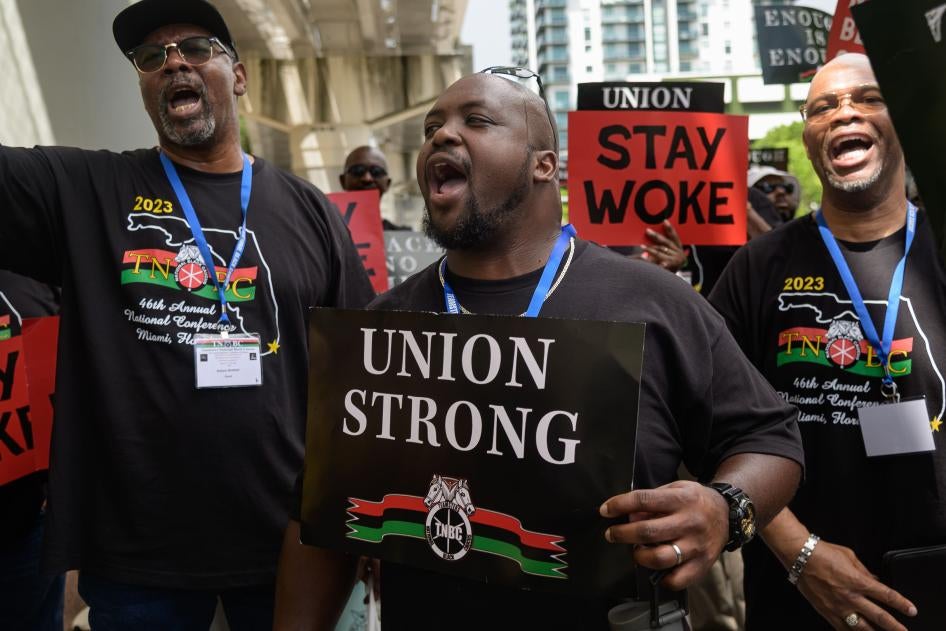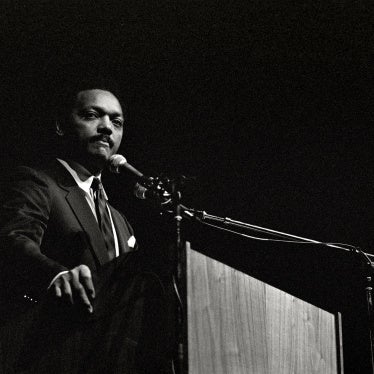Labor unions are experiencing a resurgence in the United States. Public approval for unions has grown significantly in 2023, and so has the number of American workers who are banding together to safeguard their ability to provide for their families.
To be clear, union membership is still much lower than it was 50 years ago, a drop that has coincided with increasing economic inequality. Still, researchers and journalists have noticed a new energy among some employees after decades of decline. From United Auto Workers, to Kaiser health care staff, to actors and screenwriters, more than 300,000 people across the country in 2023 have participated in strikes and other labor actions.
Labor leaders are hoping that the momentum will help teachers in Florida, where some educators consider their rights and classrooms to be under attack. Unions representing K-12 and higher education professionals have played a key role in defending the right to education, and now they’re navigating what they say is retaliation.
Republican Gov. Ron DeSantis’s apparent censorship efforts have raised some national concern about their potential negative impact on students, and some experts say his actions also pose a threat to workers’ rights. In 2022, Florida’s legislature passed the “STOP W.O.K.E.” Act, which attempts to keep public universities from teaching the history and causes of structural racism in the United States. It also passed the “Parental Rights in Education” law, which restricts classroom discussions of gender identity and sexual orientation. Hundreds of books by Black and LGBTQ authors are no longer on Florida’s library shelves, and recently, officials proposed a curriculum that would teach students that slavery benefited Black Americans by teaching them skills.
Union leaders remind us that Florida’s state government has done this before. From 1956 to 1965, the Florida Legislative Investigation Committee surveilled, investigated and harassed Black civil rights activists, LGBTQ people, and some university professors. The Johns Committee, as it was called, began its crusade against groups such as the NAACP fighting for desegregation by claiming members had communist ties. The committee later began outing LGBTQ educators and students in an era when that put them in danger. Extreme tactics included paying state informants to spy on and report people suspected of “homosexual activity.” By 1965, the Johns Committee prompted Florida to fire 39 professors, revoke dozens of public teachers’ licenses, and expel many students from public colleges.
Florida’s current attack on rights has had an impact; some educators are leaving the profession or moving to other states. As of August, the state had nearly 7,000 teacher vacancies. Some educators have said they feared losing their jobs or even facing criminal charges for upsetting some parents.
But there is a key difference between the Johns Committee era and today. Educators are now seeking protections through unions. As a result, professors and teachers are not being fired in large numbers or facing the extreme forms of state harassment seen in the past.
The United Faculty of Florida (UFF), which represents 20,000 college-level faculty, and the Florida Educators Association (FEA), which represents 150,000 teachers at the K-12 level, have helped educators to navigate investigations into their lesson plans by school administrators. When the state has targeted educators, union leaders have reminded them of the rights provided by their employment contracts.
Early this year, DeSantis-appointed board members of the New College of Florida, a public liberal arts college, worried many educators across the state when they fired the college’s president. During the meeting, board members criticized the school’s diversity, equity and inclusion office. The board replaced the president with a Republican former legislator who led the Florida Education Department in banning “critical race theory” in 2021. The same board members recently announced plans to abolish New College’s gender studies department.
When ethnic studies and gender studies departments at other Florida colleges and universities suspected they might face elimination, UFF leaders advised administrators that these departments cannot be dismantled without first consulting the union bargaining committee. That is to say, if a professor was hired to teach women’s studies, that professor’s contract cannot be rewritten at the whim of a political leader.
Such actions have placed organized labor at the forefront of the defense of free expression and academic freedom in Florida. “Unions develop expertise in collective action in the workplace that is transferable to the political arena,” Joseph Wright, a political science professor at Penn State University, told me in an interview. “They’re good at what they do. That’s why they become targets.”
In June, Florida passed SB256, a law stating that 60% of workers eligible for public-sector unions must pay dues or the chapters risk losing certification. The law eliminates individual members’ ability to send dues automatically through payroll deduction, though police and firefighters’ unions notably are exempt. Educators and other public-sector unions sued, contending that the law is retaliation by DeSantis and that it violates the right to free speech, the right to assembly, and the Fourteenth Amendment. That litigation is ongoing.
Workers are now organizing to protect their right to remain unionized. The UFF chapter at the University of Florida has until March to reach the 60% threshold. Other chapters face various deadlines through next summer, when their contracts expire.
The DeSantis administration has demonstrated little interest in pluralism or protecting people’s rights. Those committed to justice and multiracial democracy should see that the rights of workers are connected to the rights of students and should support teachers in Florida who are organizing to hold the line.










